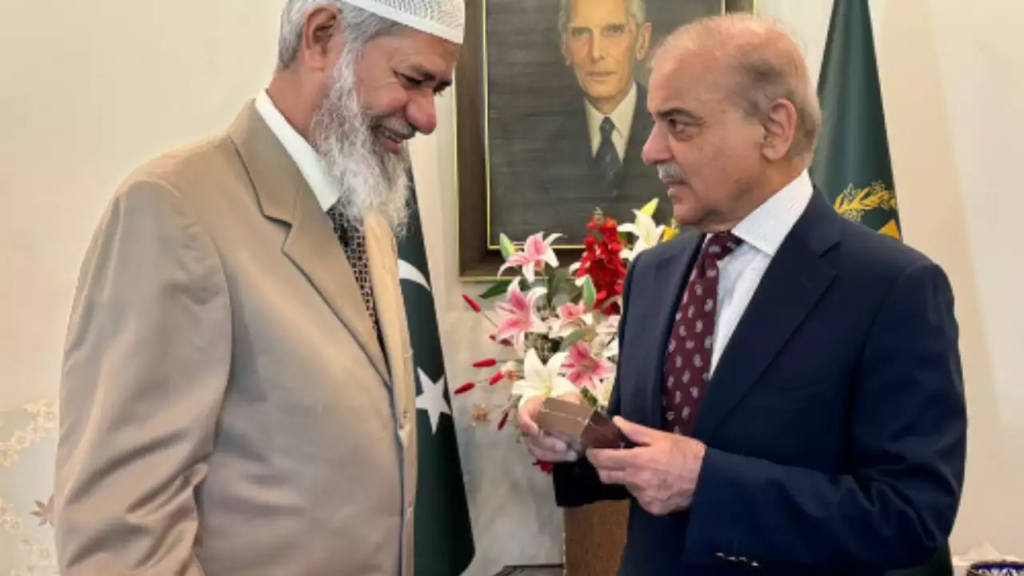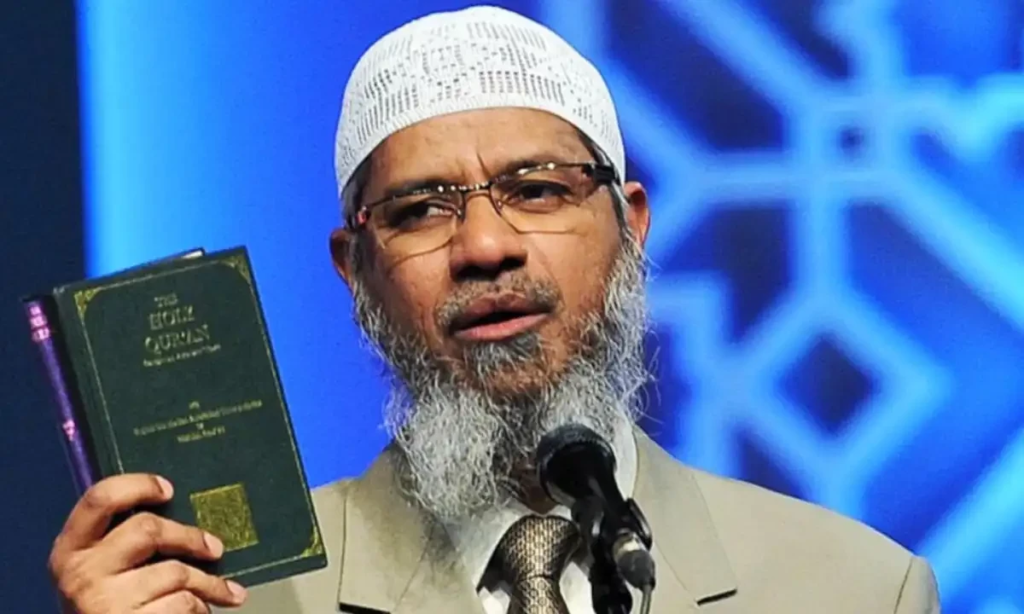Reverend Azad Marshall, a prominent Christian leader and President Bishop of the Synod, the Church of Pakistan, has made a passionate appeal to the Pakistani government to take action against Dr. Zakir Naik, a well-known Islamic preacher who recently visited Pakistan as a state guest.
During Naik’s visit, his remarks reportedly discredited the Christian faith, creating deep unease among Pakistan’s Christian community. In an official letter to President Asif Ali Zardari, Reverend Marshall emphasized the need for the state to uphold the rights of religious minorities, criticizing both Naik’s remarks and the government’s lack of response.
His letter is not only a call for accountability but also a reminder of Pakistan’s foundational promises of religious equality.
Zakir Naik’s Visit and the Christian Community’s Response
Dr. Zakir Naik’s recent visit to Pakistan was marked by public speeches and private engagements, drawing significant media coverage and public attention.
Known for his assertive style and provocative commentary on religions, Zakir Naik’s statements during his visit openly challenged the authenticity of Christianity, questioned its sacred texts, and undermined Christian theological foundations.
Read : Fugitive Zakir Naik Praises India in Pakistan: Pakistanis Say ‘Don’t Invite Him Again’
Such comments caused distress within Pakistan’s Christian minority, prompting Reverend Marshall to write to President Zardari. The letter asserts that Naik’s remarks were not only insensitive but had crossed a line by questioning the faith’s core beliefs without an opportunity for Christian scholars or pastors to respond.
This incident has highlighted the underlying tensions between religious communities in Pakistan, especially when religious minorities are targeted or made to feel vulnerable. For Christians in Pakistan, an environment already fraught with challenges, this perceived attack on their faith came as a state-sponsored affront.
Read : Pakistani Man Sent to Mental Hospital for Trying to Open Gay Club
Reverend Marshall’s letter criticizes the government for not addressing this distress and failing to uphold its commitments to religious harmony.
He stresses that Zakir Naik’s remarks directly contradict Pakistan’s vision as laid out by its founding father, Quaid-e-Azam Muhammad Ali Jinnah, whose early speeches advocated for religious tolerance and equal rights for all citizens, regardless of faith.
A Call for Religious Harmony and Protection of Minority Rights
Reverend Marshall’s appeal also draws attention to Pakistan’s constitutional guarantees, which protect religious freedoms and minority rights. In his letter, he references Article 20 of the Pakistani Constitution, which states, “Every citizen shall have the right to profess, practice, and propagate his religion,” and Article 36, which mandates the protection of minorities’ legitimate rights by the state.
Reverend Marshall emphasizes that Dr. Naik’s remarks represent not just an insult to Christians but also a failure of the government to fulfill its constitutional responsibilities. By allowing Zakir Naik to make inflammatory statements in public, the government has, in Marshall’s view, contributed to a sense of marginalization among Christian citizens.
The letter also underscores that such incidents are harmful to Pakistan’s reputation as a nation that values diversity. It calls for government officials to consider the potential consequences of allowing divisive figures to speak unchallenged.
The response from Pakistan’s Christian community and the urgency of Reverend Marshall’s request reflect a growing concern among religious minorities in Pakistan, who increasingly feel that the state is not doing enough to protect their rights.
The lack of official regret or response from the government, Marshall argues, has intensified the Christian community’s sense of exclusion and vulnerability.

Reverend Marshall further notes that Pakistan’s founding vision embraced unity and respect across religions. By invoking Jinnah’s historic address to the first Constituent Assembly in 1947, Marshall draws a powerful parallel between Pakistan’s aspirations at independence and the current plight of its minorities.
Jinnah’s speech famously declared that Pakistan would ensure freedom and equality for all religions, and Marshall’s appeal thus serves as a call for Pakistan to honor this founding commitment.
The Broader Plight of Religious Minorities in Pakistan
For Pakistan’s religious minorities, the experience of discrimination and marginalization has unfortunately been a longstanding issue. Incidents like this underscore the daily challenges faced by Christians, Hindus, and other minority communities in Pakistan, who are often subject to social prejudices, unequal treatment, and, in severe cases, violence.
Blasphemy accusations, for instance, have resulted in mob violence, legal persecution, and even extrajudicial killings, leaving religious minorities feeling insecure and marginalized. Reverend Marshall’s appeal to the government is a reminder of the pressing need for legal safeguards and protection against hate speech and religious intolerance.
The incident with Dr. Zakir Naik is not an isolated one but part of a broader trend where religious intolerance is often overlooked or inadequately addressed. Despite Pakistan’s constitutional protections, the failure to curb inflammatory rhetoric and to defend the rights of religious minorities has left many feeling vulnerable.
Reverend Marshall’s letter seeks not only an immediate response to Zakir Naik’s comments but also long-term measures to prevent such incidents from recurring. His call for legal action and a formal expression of regret reflects the Christian community’s desire for validation and security in their homeland.

The issue of religious intolerance has implications for Pakistan’s global image and its commitment to international human rights norms. While the government has repeatedly emphasized its dedication to religious harmony, the Christian community’s concerns highlight a gap between rhetoric and reality.
Reverend Marshall’s letter, therefore, is a significant step in urging the Pakistani government to reaffirm its commitment to protecting minority rights and to take action against those who seek to undermine religious unity in the country.
Reverend Azad Marshall’s demand for action against Dr. Zakir Naik reflects a deep-rooted concern for the protection of religious minorities in Pakistan. His call to President Zardari underscores the responsibility of the state to uphold constitutional values and to ensure that religious freedom is respected.
By invoking the founding principles laid out by Quaid-e-Azam Muhammad Ali Jinnah, Reverend Marshall’s letter is both a plea for justice and a reminder of the inclusive vision that once defined Pakistan.
The Christian community’s appeal for legal action and government accountability highlights the ongoing struggle for equality and religious respect in Pakistan, a nation with a rich but complex religious tapestry.

